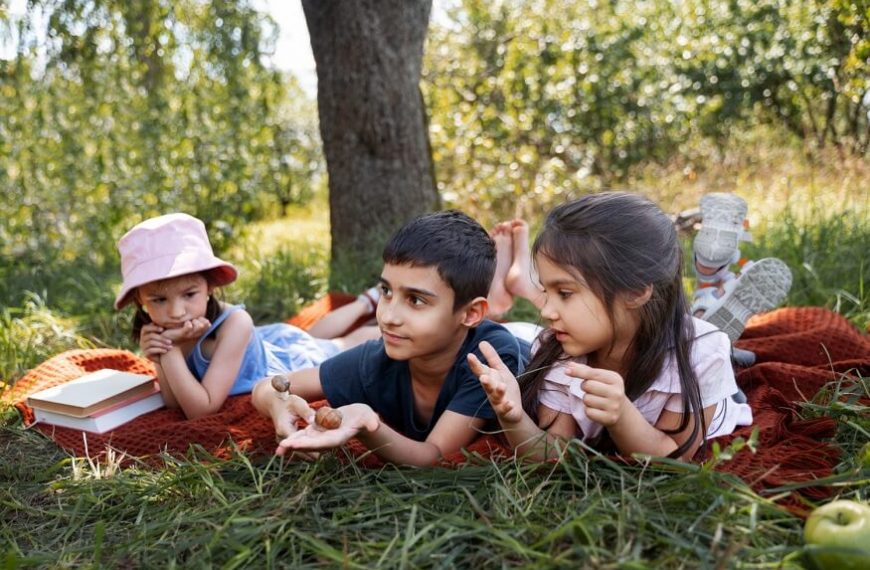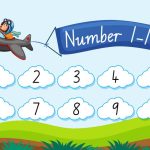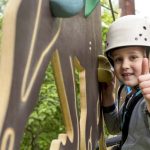Shakespeare’s Prospero spoke of ‘brave new worlds’. While taking off your shoes and standing in a puddle of muddy water might not speak of bravery to you, that foray into the unknown might just require a strong show of bravery from your little one.
Through learning in the outdoors, children come to understand that it is not merely in the environs of the classroom where learning occurs. Before we take a deep dive into the wonderful benefits of Outdoor Learning, though, we must first gain an understanding of what it truly implies.
What is Outdoor Learning?
Outdoor Learning is actually a broad term that encompasses all kinds of outdoor play in the early years. Recreational and Adventure Activities, to name a couple. It is actually more motivating and has far more impact and credibility than the kind of learning one garners in a classroom.
No matter how many years the debate has been running over Indoor vs Outdoor learning, one thing is clear: Outdoor learning is more ‘real’. It takes place in an arena where actions have real results and consequences. But that’s just the tip of the iceberg. Ready to take a look at the many wonderful benefits Outdoor Learning has to offer?
The Benefits of Outdoor Learning
Outdoor Learning activities for preschoolers afford far more benefits than you might possibly imagine. You will be surprised at some of them.
Better Health
There are studies that have shown that learning activities for preschoolers in the outdoors could help them avoid childhood obesity. What’s more, every part of our body needs to be duly energized and a good Outdoor Education takes care of just that.
It improves mental health and well-being
There’s a large body of research that shows that spending time outdoors can work wonders when it comes to improving the mental health and well-being of children. Ever heard of ‘Nature Deficit Disorder’? It stems from spending too little time outdoors. This only contributes to behavioural problems you don’t ever wish your child to face.
Increased Motivation
Outdoor learning activities for preschoolers are great in that they allow both the mind and body to be freshened. Fresh from a stint in the outdoors, children are naturally more energized to work with a sense of gusto in the classroom. One of the truly great things about play is that it stimulates the neural pathways in the brain and thereby helps in problem-solving, that further increases that sense of motivation.
It increases their sense of love for the natural world
The environment in which we live is far more precious than we give it credit for. Children who spend more time in nature begin to form an invaluable bond with it. They grow to respect it, becoming aware of how much it provides for us. That sense of empathy they have for people and animals, is now extended to the environment as well.
It helps sharpen their social skills
Outdoor Education implies spending time with other children. The activities performed by children in the outdoors call for a strong sense of collaboration and team-building. This goes a long way in helping them communicate with each other, solve problems and strengthen relationships.
It makes for a more inclusive education
Perhaps one of the best benefits of Outdoor Education lies in the fact that it gives more scope for inclusive activities. There are more and more opportunities for all pupils to be together and experience the same range of activities. This is great especially in the instances of children with special educational needs, who can feel completely burdened with the stress a traditional classroom brings.
It helps them cope with failure
When children play sports, they are well accustomed to the sense of failure. That teaches them to understand the cause for the same and to get up on their feet and try again. Outdoor Education, thus, helps them build essential life skills and better coping mechanisms. When they seek support from their peers and facilitators, they come to harbour a positive mindset, and keep that unnerving anxiety well at bay.
Simple Outdoor Learning Tips for Your Child
When you’re a parent, you’re also a teacher to your child. Here’s a look at things you can do to promote Outdoor Learning.
- Nature Color Hunt. Take them for a walk in nature and have them collect things like pebbles or leaves. They have to identify the colours of things they have collected.
- Planting Seeds. A great way for them to nurture a sense of appreciation for the environment they live in, is to have them plant a seed in your garden and then cultivate a sense of appreciation for the life that stems from it.
- The Letter and Number Race. Children have to race between water-filled buckets to sort letters from numbers, in this cool game that lets them practice letter and number recognition, while practicing sorting.
- Making Mud Pies. You don’t have to take your little one all the way to the beach to create those castles of sand. Let them make mud pies in your backyard itself. Not only will they have tons of messy fun, but they will sharpen those motor skills of theirs, too.
- Hopscotch. This classic game is another great way to help children recognize numbers. All you have to do is draw a hopscotch grid on the sidewalk with chalk, and teach your children to play the game. Not only will this game help with their recognition of numbers, but it will also work wonders when it comes to honing their sense of balance and gross motor skills, too.
At EuroKids, Outdoor Learning is one of the most important aspects of our curriculum. We believe that it has an even greater role to play in imparting children some invaluable life lessons. ‘All Work and no Play makes Jack a dull Boy’, is a phrase we have all heard as children. Needless to say, the essence of this saying is firmly imprinted in our ethos.
















